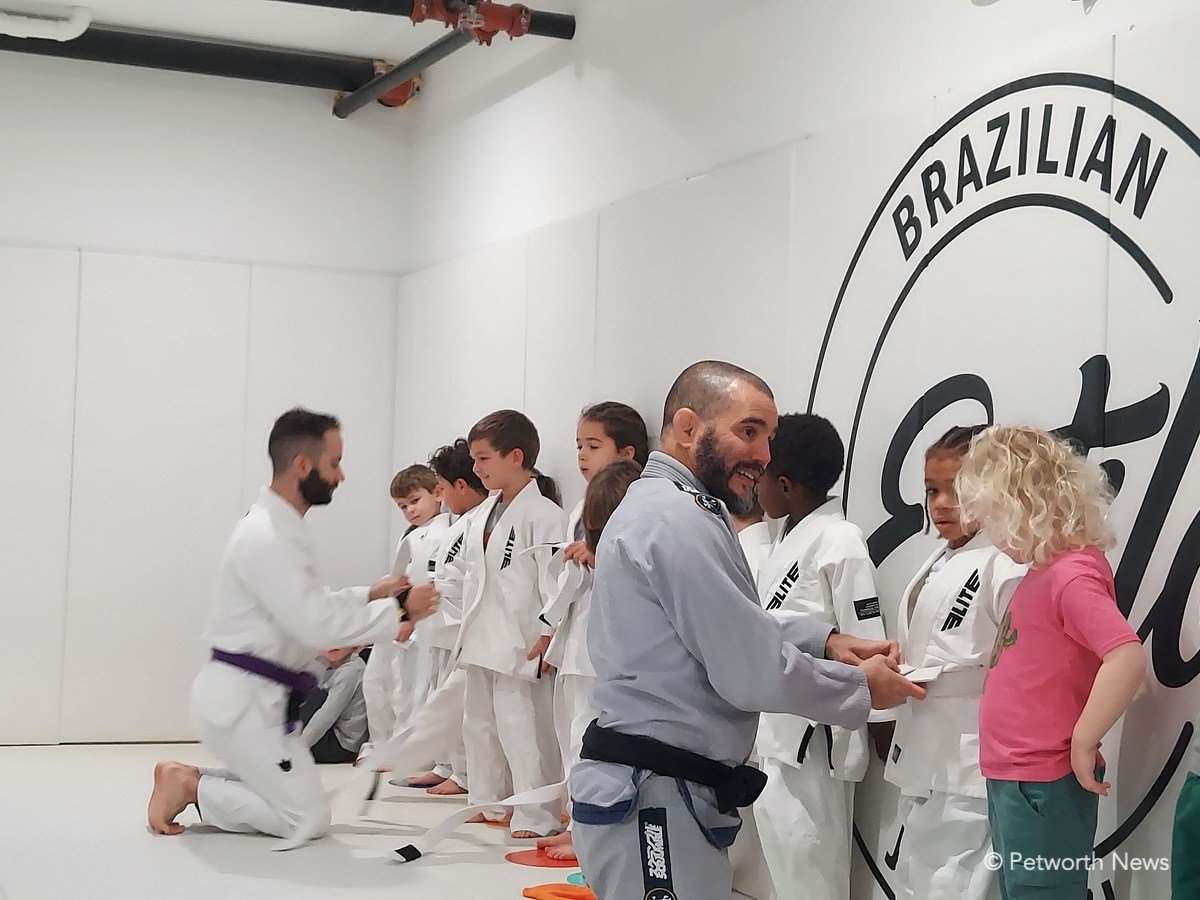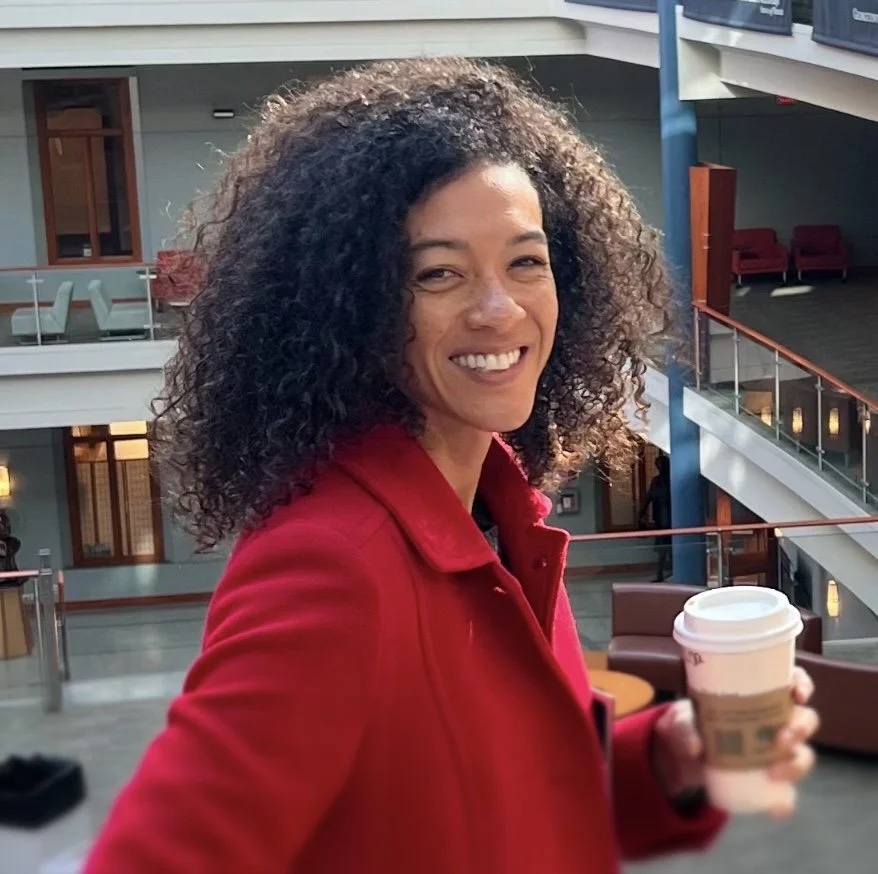Brightwood/Petworth residents meet with city leadership to talk about crime
/Commissioner David Sheon opens the meeting
On April 5th, residents of Brightwood and north Petworth met at the Brightwood Park United Methodist Church to talk about crime issues that have been occurring in the area. Beyond the 30 or so residents, also in attendance were representatives from DC government, including Chris Dyer from the office of the Mayor, MPD 4D Commander Wilfredo Manlapaz and Lt Shane Lamond and Ward 4 Councilmember Brandon Todd, as well as ANC 4D Commissioners David Sheon and Nancy Roth.
Commissioner David Sheon, who organized the meeting along with Pastor Gerald Elston, opened the discussion and thanked everyone for coming. Due to the recent sounds of gunfire, and the bullet holes in some homes, residents were validly concerned about what to do, and what actions to take.
The meeting did not directly address any specific crime event, instead touched on several topics that more holistically framed the support services that might come into play to proactively help those who commit crime, as well as the new Security Camera Rebate program, a discussion by MPD Commander Manlapaz and several residents spoke about their specific concerns.
Christopher Dyer, from the Mayor's Office
First up to speak was Chris Dyer, who works in the Office of the Mayor in Victim Services & Justice Grants supervising the security camera incentive program. He gave a brief overview of the program and directed people to their website for more information.
You can find the full details of the program on this article from Petworth News: How to take advantage of the Security Camera Rebate Program.
Mr. Dyer also mentioned that the DC Victim Hotline relaunches next week, which offers a telephone hotline for crime victims for broad continuum of services from the city.
Pastor Gerald Elston
Pastor Gerald Elston, who hosted the meeting at his church, said he believes law enforcement is not exclusively the answer to crime. “Issues in the community require different disciplines, mental health treatment, jobs, and so on. The church is part of the community and pleased to be part of the discussion,” he said. “A community is a place where everyone contributes, but only if everyone has the opportunity to reach their potential.”
Councilmember Brandon Todd got up to speak and answer questions. He said that last year’s budget surplus resulted in more safety and security initiatives from the DC government, including the camera rebate program. He said he hopes to include more PSAs in Ward 4.
Todd said he has created an advisory committee on public safety that includes residents, attorneys and retired MPD, to offer him policy guidance on safety initiatives. He said that he has worked with Samantha Nolan to train 75 new block captains across the Ward, and participated in more than a dozen neighborhood walks with MPD and city leaders to meet residents and hear concerns.
Councilmember Brandon Todd
Todd added that the new budget adds $4 million for MPD retention and hiring, expanded permanency for the camera rebate program, as well as additional funds for the human services budget (mental health, DYRS, summer youth employment program, LEAP program). “There are a number of things we can do, will do and can stay focused on,” Todd said. He gave two examples of legislation that he has introduced to deal with quality of life issues, such as graffiti and public drinking. He introduced legislation to double the fines for illegal graffiti, and introduced a measure to strengthen single-sell alcohol laws (selling single cans of beer) to now include "doubles." Todd said he speaks to 4D Commander Manlapaz every day.
A resident said she was concerned about the focus on law enforcement, “I’m curious about encouraging greater focus on prevention on ‘justice involvement.’ Once people become in contact with police, even if it doesn't end in incarceration, can impact their options for rent or quality housing,” she said. She asked Todd for his “theory of governance beyond law enforcement" and asked Todd to include social workers on his public safety committee.
Todd said, “We can do more.” He said he believes job training programs are a good direction. “If people see, as the mayor likes to say, a pathway to the middle class, that's always very helpful."
Another resident said he was concerned about money being spent on the job training programs. “These programs are temporary and cause frustration to unemployed people, since they're not a fruitful path to a job,” he said. He wants the city to look at how they contract with businesses for the job training, as often the job doesn't pan out, or only lasts a short amount of time. “The only person who is benefiting is the companies that contract with the city, but not being held to a commitment based on person or time. It's kind of like free labor, a revolving door."
Todd said he agreed with that, and wants to see a 6-8 month training program that leads to a job, with subsidized housing as well as job training.
Another resident spoke about how those who were incarcerated can't find jobs. The job training may be good for those coming out of school, but those with a record are having a problem. “The murders are generally between people who know each other,” she said, “they're not shooting at me necessarily. If we get these people jobs than we don't have to focus solely on law enforcement.”
Todd responded that the DC Office of Returning Citizens has been helpful, and that the DC government has stopped asking about prior incarceration on initial job applications. A resident pointed out that this didn't stop the person from being kept out of the job once their past incarceration was finally disclosed. Todd again agreed there needs to be changes.
Commissioner David Sheon said he has met with head of ABRA to discuss an idea to train returning citizens in the restaurant business. Todd said he'd support that type of program. He said one simple of fix isn’t the answer, but will take a mix.
Sheon said that Commander Manlapaz has been very responsive, as has Lt. Lamond. He gave an example of a resident who came to him to complain about an officer, but was afraid to go to the police. Commander Manlapaz went to the man’s home to talk with him, and then helped the resident file a complaint against the officer.
4D Commander Wilfredo Manlapaz
Commander Manlapaz then got up and said that there are nine Police Service Areas (PSAs) in the Fourth District. Each PSA has a lieutenant as a manager who look at crime and respond to issues and resident needs in their PSA. He urged residents to subscribe to the MPD listserv. “We will respond to question posted to the listserv,” Manlapaz said. “It might take a little bit of time since we’re not sitting in front of a computer all the time, but we will respond.” (Here's more on local listservs.)
“We are the police,” Manlapaz said. “We patrol to prevent crime and arrest people who commit crime. That's what we do. But education is key, that's what brought me where I am.” He said he worked menial jobs when he was a kid but was focused on education as he grew up, and even after he became an officer. “MPD sent me to school, and I got a Masters from John Hopkins because of MPD.”
He said that when the police get involved, it means there’s been a failure of other services, and that policing should be the last step. There needs to be social services, health services, job training and education to ensure there is opportunity to see more than crime as an option.
As for stats, Manlapaz said that compared to last year there has been a 8% reduction in crime in 4D, with a 2% decrease year to date. “While robberies are the main issue, we’ve seen a 60% drop in last 30 days.” (MPD arrested several people that apparently committed dozens of local robberies.) He said that burglaries are going up, with theft from autos still remaining the common issue (people leaving valuable in their cars). “It only takes 5 seconds to break the window and steal that Macbook,” he said. “It's hard to police that.”
He said that sounds of gunshots are up, and that there had not been any homicides this year. There are 2 homicides on the books for this year, but they were reclassifications from crimes committed in 2015. “Last year we had 5 street homicides, zero this year.”
Manlapaz said that MPD cooperates with Montgomery and Prince George’s County police, and speak with their commanders regularly (crime doesn’t respect borders, after all).
“What does MPD need to be effective?” a resident asked. He said he knew that MPD was still below their optimal levels for hiring officers.
Manlapaz responded that like anyone, they could always use more money, more resources. But in terms of help, he said, “What the community can do is to call 911 for suspicious activities.” He said it’s invaluable to have residents keep an eye out for their neighbors, calling in about suspicious cars or people loitering in the neighborhood that they don’t know. Another resident asked about texting 911, said she tried that and didn’t get a response.
Manlapaz said that the correct number to send a text is 50411, not to text “911.” “The text line is for reporting anonymously reporting serious crime and tips, not general 911 issues. "Call 911 first."
Another resident asked about “officer friendly programs” and other ways to positively interact with the community. Manlapaz said they do have officers walking a foot beat, getting out of their cars to knock on doors and introduce themselves, but again, resources can be tight and an officer on foot can't respond quickly. He said the department also relies upon Derek Stanton, their community outreach officer, to help get MPD involved in community events.
He gave an example of this weekend’s upcoming MPD Mountain Bike Ride on Sunday. They’re inviting residents to ride with MPD officers, starting at 9:30am at the Takoma Park Metro, taking the Metropolitan Branch Trail down to the US Capitol. “It’s all downhill,” Manlapaz joked about the ride.
The Commander also urged people to find a child in the community to help with reading or basic math. He said that community involvement was critical to helping kids stay on the right path.
Pastor Elston asked the commander why there have been so many gun discharges in the area.
Commander Manlapaz said that most of those involved in the gun shots are young black males who have guns “to protect themselves in the crews. Things flare up and they shoot at each other,” he said. He said they also know it’s easier to get someone to comply during a robbery if you have a gun. He mentioned, though, that some robberies are using BB guns… and they look real. He gave an example of a resident who called MPD about a car with four young men in it, parked on the street. The caller said they didn’t know the men, and they seemed to be arguing. When MPD arrived, they found a bag in the car with 5 guns, four of which were BB guns. The other was an uzi machine gun. The men were from Virginia, and were arrested.
Another resident said he was concerned about recidivism, that when people are being incarcerated at private prisons, they’re not receiving education or training. “DYRS is for kids, but adults aren't being trained.” He said that his concern was these private prisons were only focused on the money, and not rehabilitating the people in the prison.
Another resident said there is a lot of over-policing going on that is not being reported. He said a lot of what’s happening is frustrating residents, but they’re not calling in complaints or 911. He said he had a conversation with an officer who told him confidentially that some new officers were using the phrase “they're going hunting at night” in reference to their evening patrols. He said he’s concerned about new officers joining the force from outside of DC who don’t understand an inner city.
Commander Manlapaz got agitated when he heard this, and said he doesn't tolerate that type of attitude from his officers. He said he would want to know who is saying they’re “going hunting” and he'll deal with it. There was some reticence to mention who had told the resident, so Manlapaz offered to meet privately. He had zero tolerance for that kind of attitude from any officer, but he couldn’t do anything about it if people don’t tell him. He said he will follow up.
Lt. Lamond (apologies for the crappy pic, I left my camera at home and it got very dark in the church)
Commissioner Sheon introduced Lt Lamond, who said that his PSA 403 officers were very dedicated to the area and like serving in the neighborhood. He said he and his officers are focused on the issues alongs Jefferson, Kennedy and Longfellow Streets, and mentioned they have recovered 8 guns east of Georgia Avenue so far this year.
The topic of finding ways to work with the young men and people on the street came up. Leon Andrews, who’s running for Ward 4 Council seat in the upcoming election, wanted to know if MPD knew the names of the people on the street. Andrews got vehement about the topic, wanting to know if policing really was a street-level commitment. "Do you know their names?" Lt. Lamond responded the his officers do know the names of the people they interact with, that the benefit of their tenure in the PSA is familiarity.
ANC 4D Commissioner Nancy Roth (seated) and David Sheon
Commissioner Sheon said he wants to hold a series of these types of meetings, with the next one to be scheduled two months from now. A resident asked for a meeting without MPD involvement, so they can look at ways to resolve crime issues that don’t involve policing, and Commissioner Sheon agreed. The 2+ hour meeting wrapped up with people talking and thanking the various MPD and city government officials.
Note: The next PSA 403 community meeting is Wednesday, April 20th at 7 PM at Emery Recreation Center (5801 Georgia Avenue, NW). Lt. Lamond will be on-hand to discuss crime stats, crime trends in the PSA, and any other issues affecting the PSA.


















